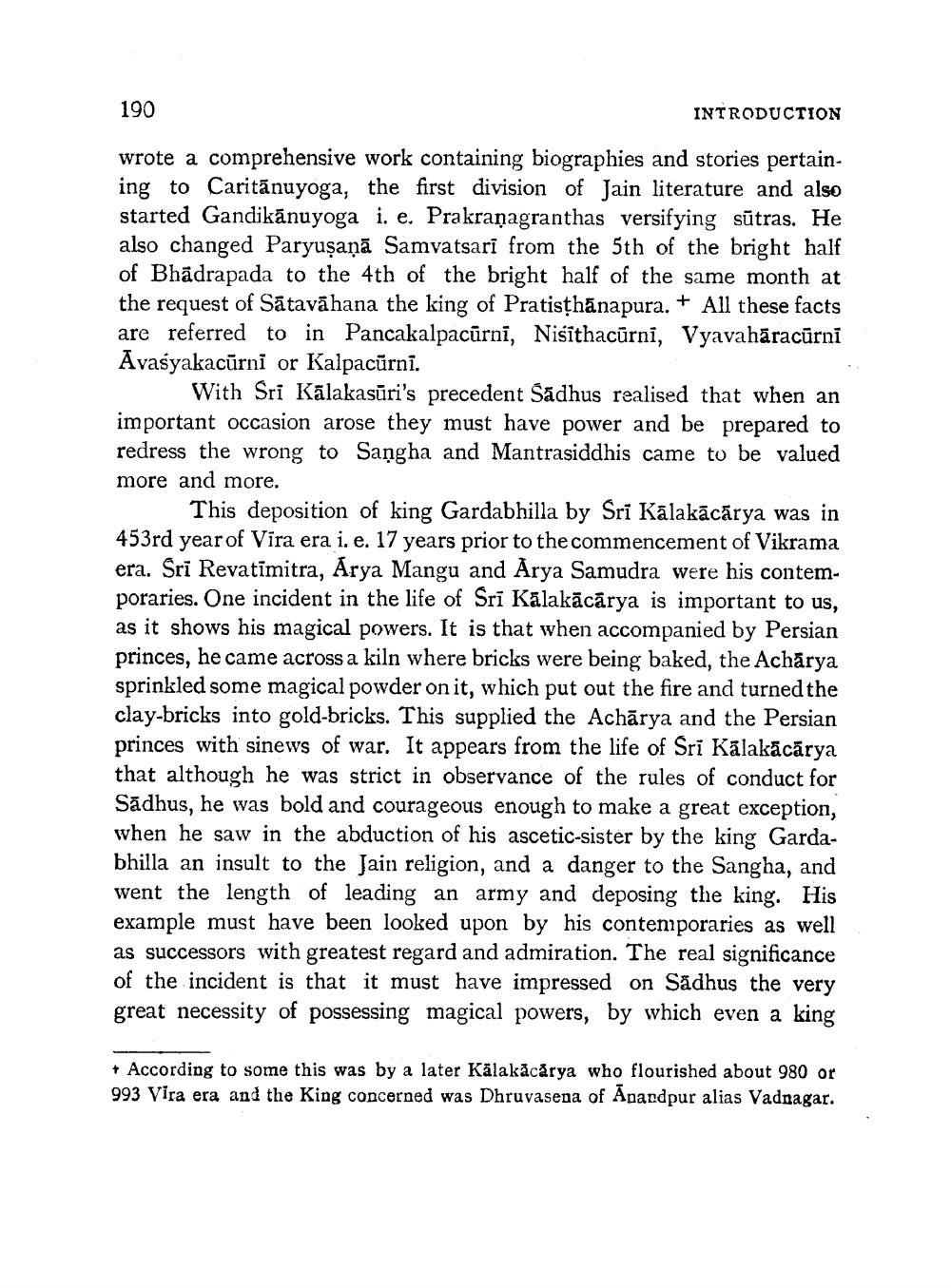________________
190
INTRODUCTION
wrote a comprehensive work containing biographies and stories pertaining to Caritānuyoga, the first division of Jain literature and also started Gandikānuyoga i. e. Prakrañagranthas versifying sūtras. He also changed Paryusaņā Samvatsarī from the 5th of the bright half of Bhadrapada to the 4th of the bright half of the same month at the request of Sātavāhana the king of Pratisthānapura. + All these facts are referred to in Pancakalpacūrnī, Nisīthacūrni, Vyavahāracūrni Avasyakacūrni or Kalpacūrni.
With Sri Kālakasūri's precedent Sadhus realised that when an important occasion arose they must have power and be prepared to redress the wrong to Sangha and Mantrasiddhis came to be valued more and more.
This deposition of king Gardabhilla by Sri Kālakācārya was in 453rd year of Vira era i. e. 17 years prior to the commencement of Vikrama era. Sri Revatimitra, Arya Mangu and Arya Samudra were his contemporaries. One incident in the life of Sri Kalakācārya is important to us, as it shows his magical powers. It is that when accompanied by Persian princes, he came across a kiln where bricks were being baked, the Achārya sprinkled some magical powder on it, which put out the fire and turned the clay-bricks into gold-bricks. This supplied the Achārya and the Persian princes with sinews of war. It appears from the life of Sri Kālakācārya that although he was strict in observance of the rules of conduct for Sādhus, he was bold and courageous enough to make a great exception, when he saw in the abduction of his ascetic-sister by the king Gardabhilla an insult to the Jain religion, and a danger to the Sangha, and went the length of leading an army and deposing the king. His example must have been looked upon by his contemporaries as well as successors with greatest regard and admiration. The real significance of the incident is that it must have impressed on Sådhus the very great necessity of possessing magical powers, by which even a king
+ According to some this was by a later Kälakācārya who flourished about 980 or 993 Vira era and the King concerned was Dhruvasena of Apandpur alias Vadnagar.




